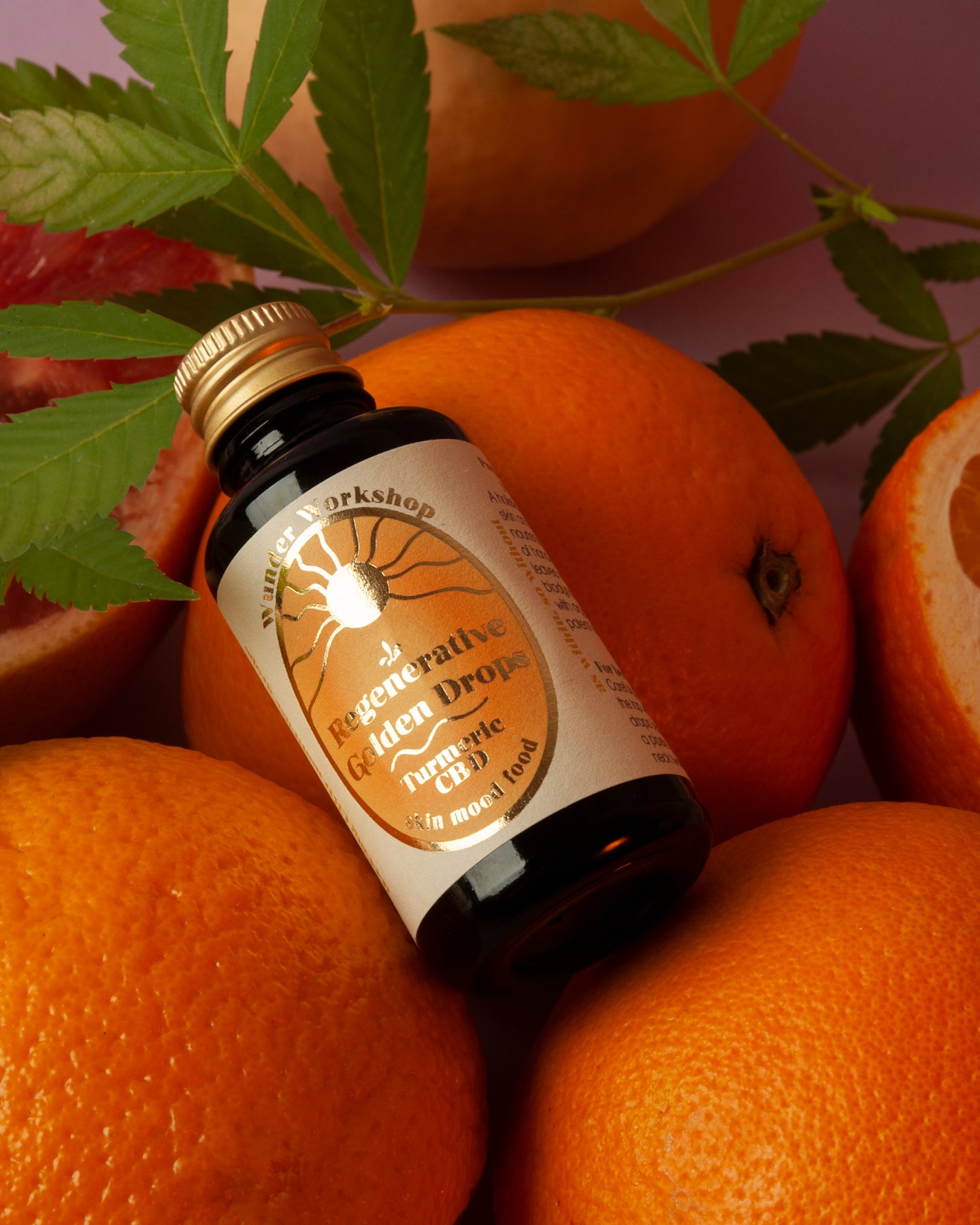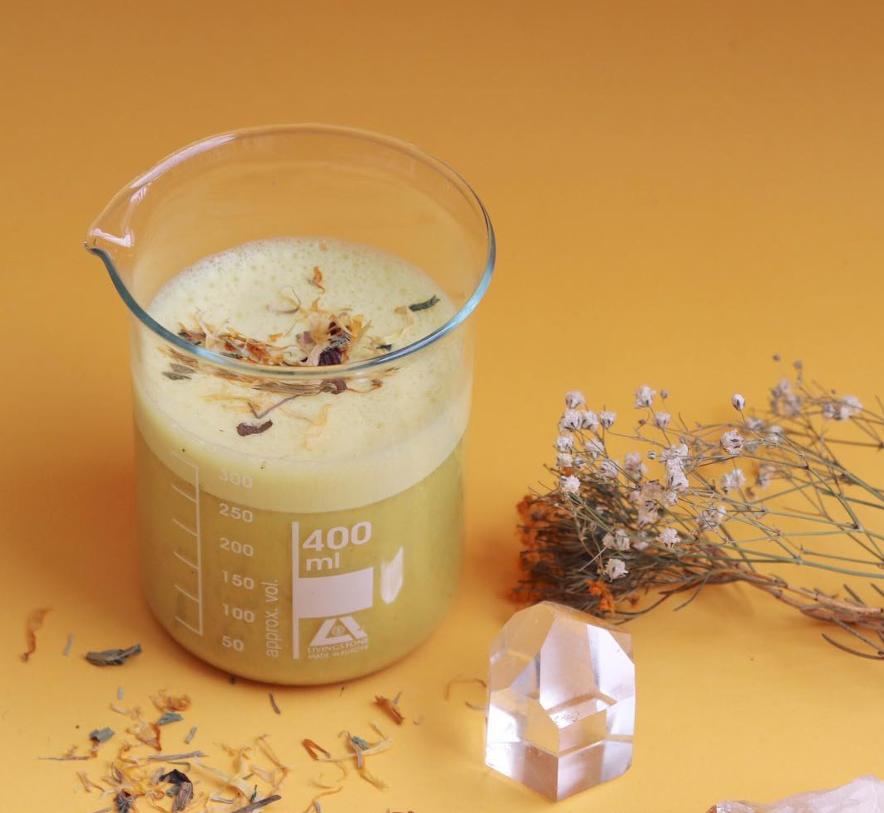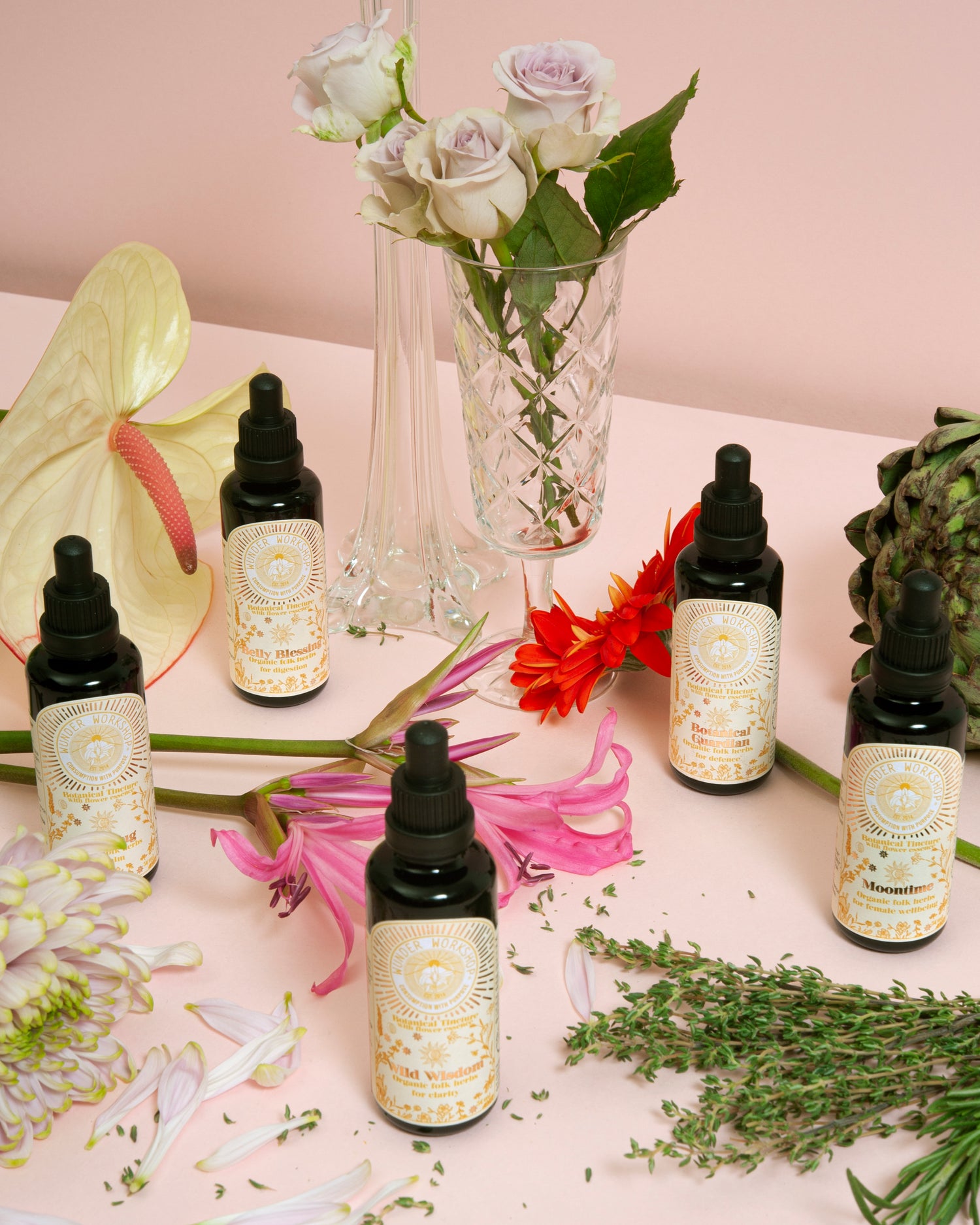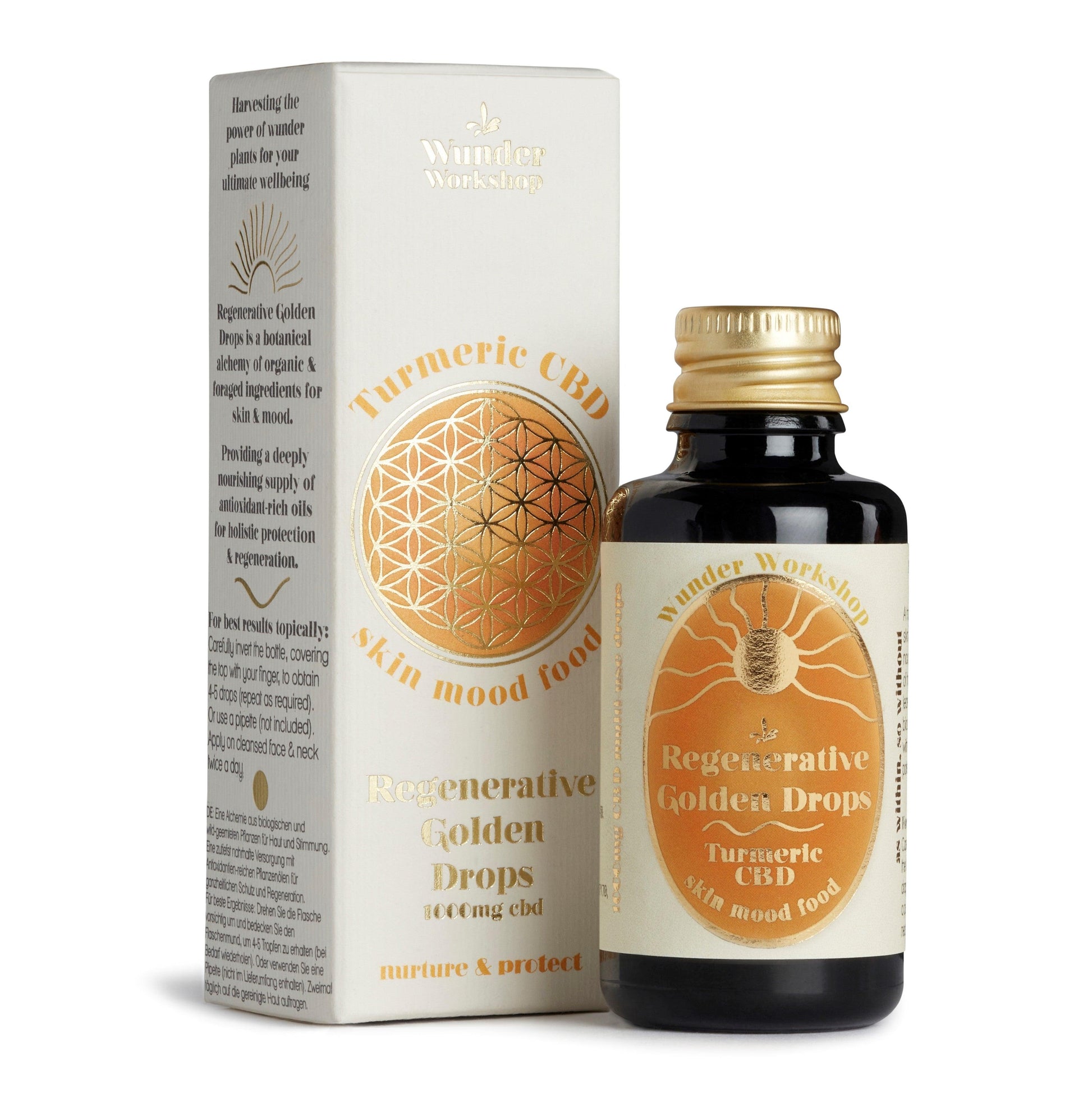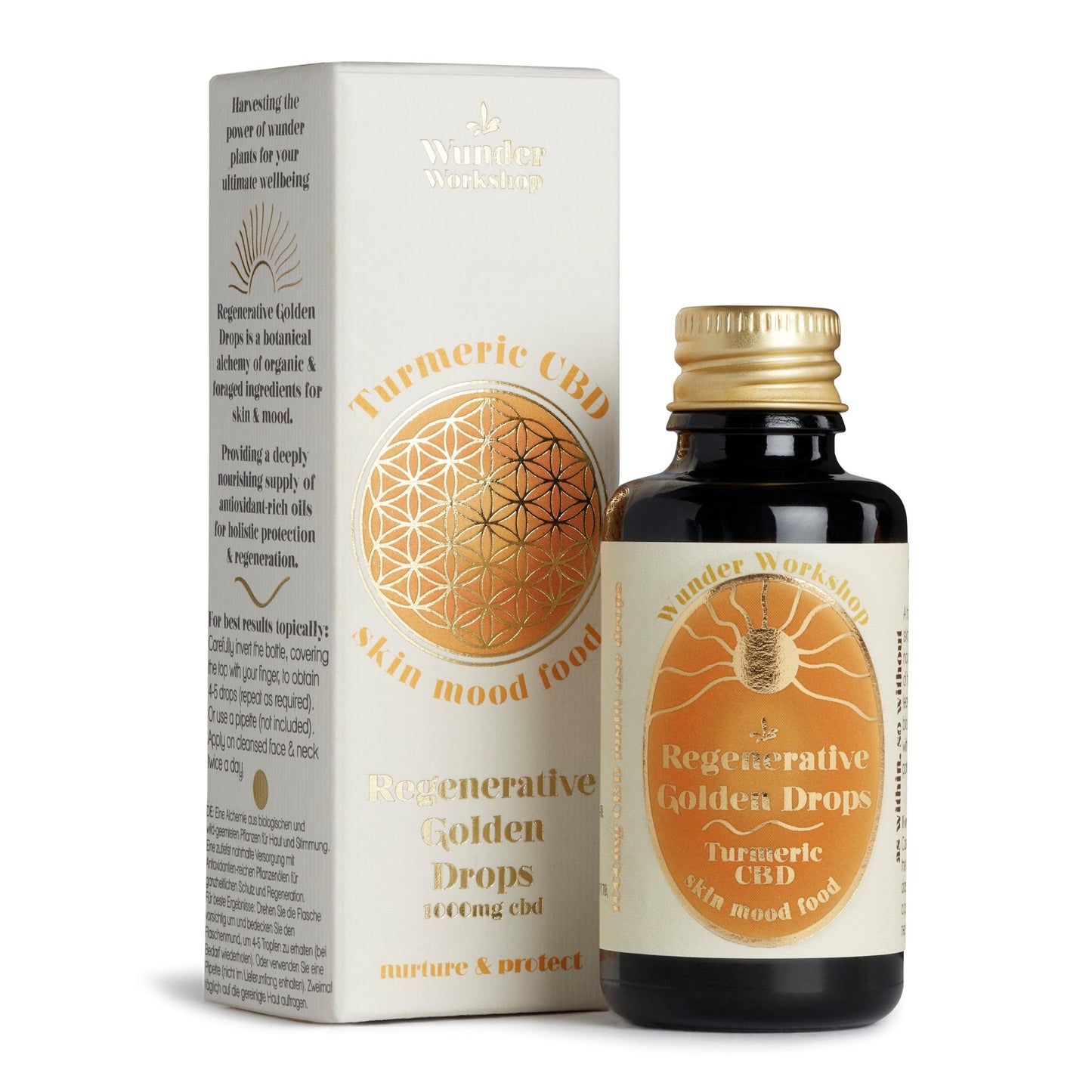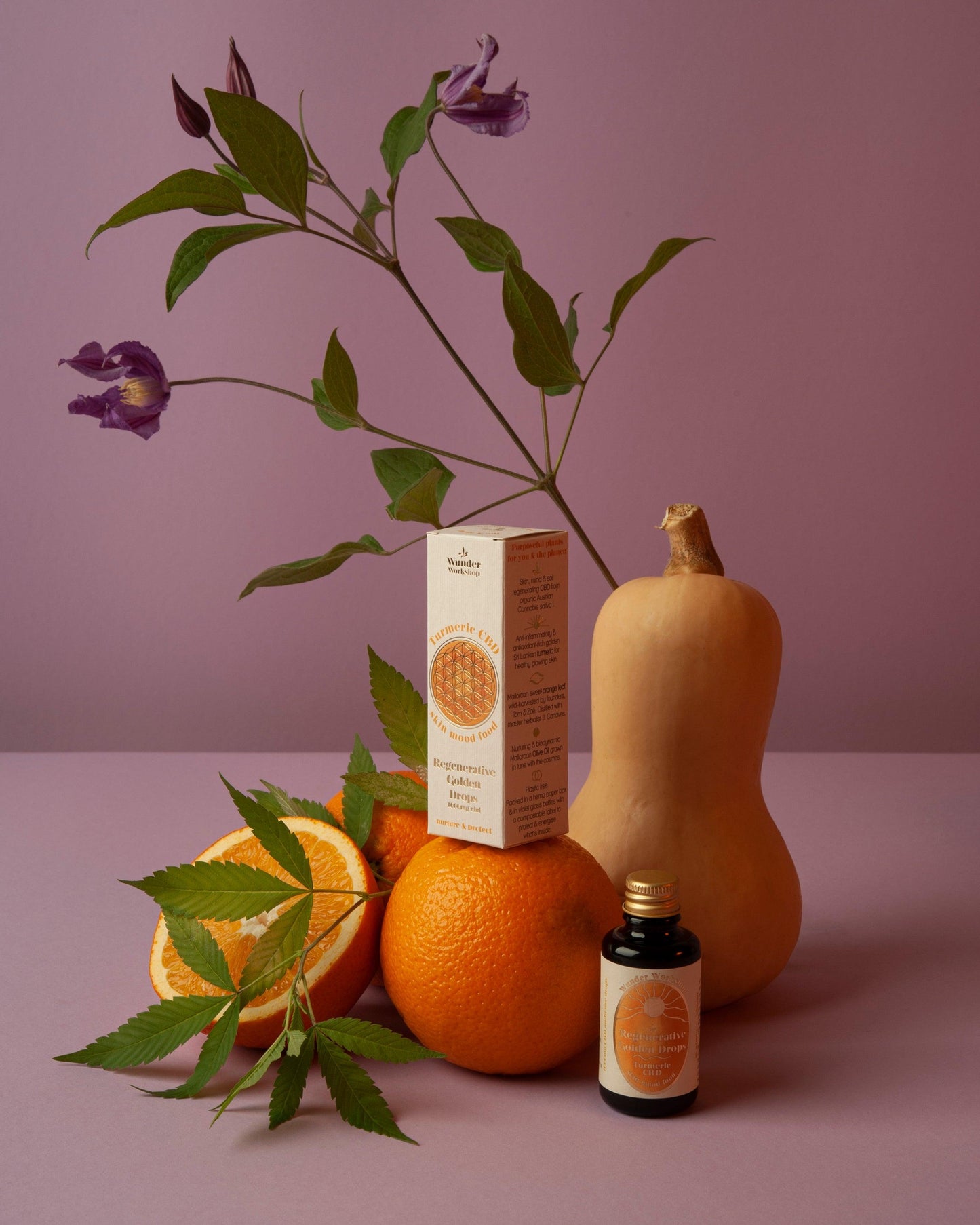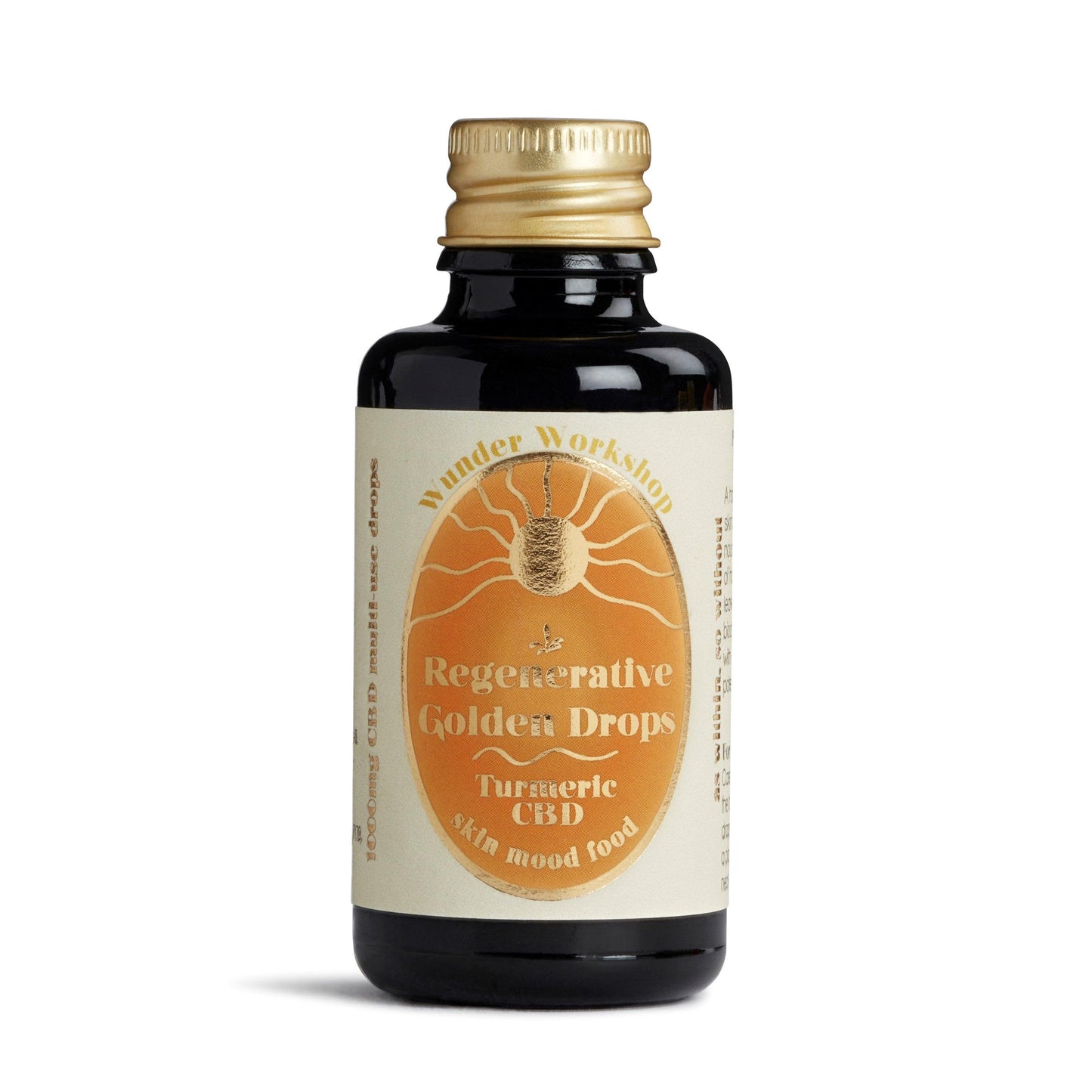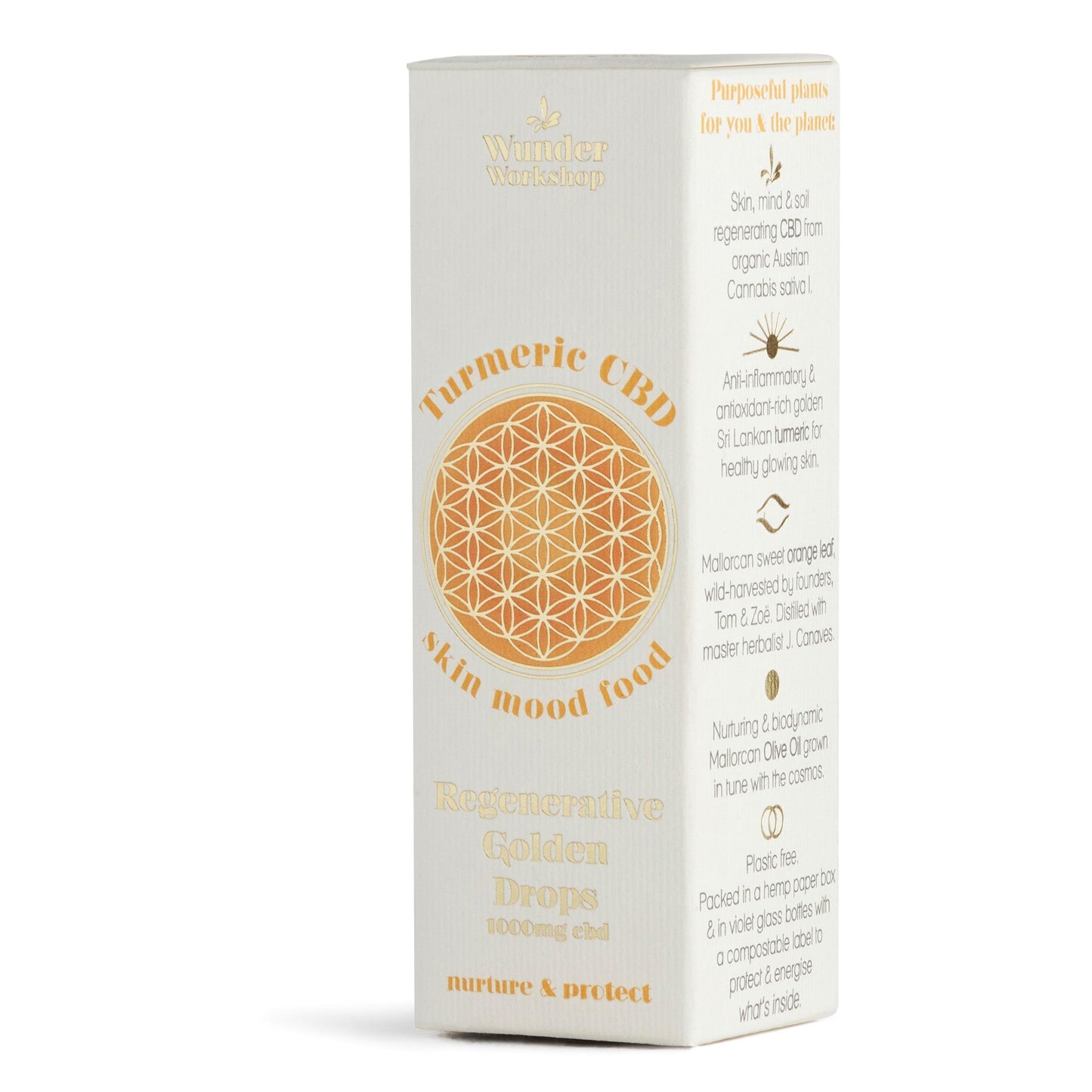We asked Medical Herbalist and friend Lily Canetty Clarke to research the very latest scientific research on turmeric.
Turmeric: a botanical brain balm
This holy and auspicious golden rhizome from the east has now become accepted as a powerful anti-inflammatory in the west. Inflammation underlies many diseases such as IBS, diabetes, arthritis and cancer and hence turmeric is a perfect natural remedy. Accumulating evidence now implicates inflammation as a critical player in the development of mood disorders and degenerative conditions of the brain such as Alzheimer's and Parkinson’s. Turmeric has therefore become a front runner for effective treatment in a simple, inexpensive and extremely low risk way. Not only is it a plant that treats these conditions but it also works preventatively to protect the brain from harm and preserve memory mood and mind.![]() Drawing by: Hannah Grace
Drawing by: Hannah Grace
How does it work?
Studies have shown turmeric to be more useful than pharmaceutical drugs. While curcumin, an active constituent in turmeric, is largely responsible for the anti-inflammatory activity, turmeric is more than a single constituent and it is the cocktail of phytochemicals in plants like turmeric that give them additive actions which offer advantages compared with single chemical drugs.
ANTI-INFLAMMATORY: Inflammation isn’t always bad; in fact, it is wholly necessary for repair and an important player in our immune response. However, in some situations, the inflammatory response never gets switched off resulting in chronic low-grade inflammation which leaves your body in high alert and this prolonged emergency state causes lasting damage to the body. The inflammatory activity of the immune system is closely interconnected with the brain, such that inflammatory markers negatively influence the function of brain messengers - the neurotransmitters and the plasticity of the brain, which means its ability to change and adapt. Turmeric works by inhibiting and down regulating pro-inflammatory toxins and signals.
APOPTOTIC REGULATOR: Apoptosis is programmed cell death which is necessary to maintain the balance of cells in the body, however in the brain certain conditions can interrupt the normal functioning of apoptosis leading to mass cell death and neuronal loss in the brain. The specific action of turmeric here is not fully understood but it appears to regulate apoptosis : preventing it when there is too much and encouraging it during a tumour growth.
ANTIOXIDANT: Free radicals are generated from many human activities including alcohol, smoking, pollution, fried foods and pesticides. When levels of free radicals are too high in the body it causes oxidative stress, which destroys cells in the body including the brain. Turmeric is an antioxidant and contains protective acids that stop oxidative damage and scavenge free radicals to protect and reverse the effects of oxidative stress in the body.
NEUROTROPHIC: Neurotrophins are proteins in the brain responsible for brain development, functioning and survival. One important neurotrophin is called brain-derived neurotrophic factor (BDNF) which is key for brain plasticity and turmeric directly induces a widespread increase in BDNF levels and its expression in the brain.

How does it affect my brain?
MEMORY
Turmeric has been shown to positively affect memory by increasing the formation of new brain cells in the memory centre of the brain, the hippocampus.
It is really useful herb in the treatment of Alzheimer’s because it is now understood that Alzheimer’s is an inflammatory condition of the brain. More specifically one of the key findings in Alzheimer’s disease is elevated amounts of a damaging protein called amyloid protein and curcumin in turmeric has been shown to inhibit the formation of and increase the destruction of this protein.
A newer field of research is also looking at turmeric for treating those with post-traumatic stress disorder (PTSD) which make up 8% of the adult population and is characterised by strong and persistently reactivated fear memories. Turmeric has been found to have an action in impairing the creation and reactivation of fear memories in the brain and could therefore become a useful adjunct therapy in the treatment of PTSD.
MOOD
The two mood disorders where the therapeutic study of turmeric has been the most exciting is in major depressive disorder and bipolar disorder.
A meta-analysis on the potency of turmeric in major depressive disorder found that it was highly useful in ameliorating depressive symptoms and reducing anxiety. While there are many causative factors in depression, inflammation is one of the key cause and effects. Turmeric’s anti-inflammatory action can boost neurotransmitters in the brain like dopamine and serotonin, which regulate mood and could explain its impressive anti-depressant effect.
Turmeric has also found a role in the treatment of bipolar disorder. It is characterised by brain cell shrinkage & cognitive deterioration and while pharmaceutical therapies can suppress symptoms, they have not been shown to be effective at stopping the underlying cause and so patients are experiencing shorter symptom-free intervals. The use of turmeric on bipolar disease encompasses all of the wonders of turmeric as a BDNF boosting, anti-inflammatory, anti-apoptotic and antioxidant herbal medicine.
How do I use this botanical brain balm?
Turmeric can be hard to absorb. Studies have shown that taking it with piperine which is found in black pepper, makes it easier for the body to access the medicinal value in turmeric. It is also better consumed with milk, nutmilk or coconut oil as curcumin is fat-soluble. Within these parameters, the possibilities of how to take turmeric are endless- curries, lattes, milky smoothies and salad dressings to name but a few! At Wunder Workshop the focus on Consumption with Purpose, is why their blends always have the key components to make the benefits of turmeric more bioavailable through natural sources.
Turmeric comes from the Latin word terra-merita meaning merit of the earth, which as you can see, from kitchen to clinic, is a name it truly deserves.
Research and text by: Lily Canetty Clarke for Wunder Workshop. Drawing by Hannah Grace.

